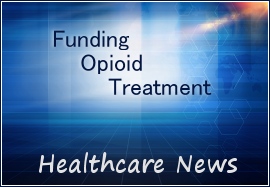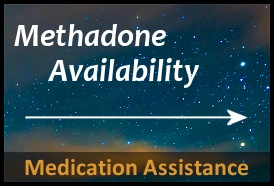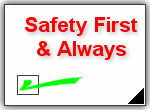 If you are currently a client in a methadone clinic, then you have most likely heard treatment staff emphasize the importance of safety with methadone and the necessity of carefully securing take home methadone doses. Methadone is a powerful medication that is tremendously helpful to recovering individuals. It is also potentially lethal in the wrong hands and consequently must be deliberately safeguarded.
If you are currently a client in a methadone clinic, then you have most likely heard treatment staff emphasize the importance of safety with methadone and the necessity of carefully securing take home methadone doses. Methadone is a powerful medication that is tremendously helpful to recovering individuals. It is also potentially lethal in the wrong hands and consequently must be deliberately safeguarded.
There is a recently published article on Bloomberg regarding methadone being diverted and then taken by someone who later died from an overdose. This turn of events has led to newly proposed legislation in five states (Maine, Indiana, Minnesota, West Virginia, and Pennsylvania) that would further tighten regulations regarding the operation of methadone clinics and their award of methadone take home medication to their clients.
The reported misuse of methadone, and associated deaths, was allegedly tied to several private, for-profit clinics that operate in these states. One of the criticisms of the private, for-profit clinics was that they are not providing "enough services". This is intended to mean that the clinics in question were not providing sufficient education & counseling support or adequate monitoring of those who receive take home methadone.
It is critically important that all methadone clinics (both private and publicly supported) implement thorough measures to educate clients on methadone safety concerns as well as institute monitoring protocols like 24 hour callbacks and random drug testing. 24 hour callbacks require take home recipients to return to their home clinic within 24 hours and to produce their methadone take home doses for count and inspection by the clinic's medical staff.
It is also important that methadone clinics only award take home medication privileges to those clients who have achieved certain progress milestones such as successive months of clean urinalysis, attendance to required counseling sessions, the absence of criminal charges, and demonstrated appropriate behaviors & attitude toward staff and peers at the clinic.
When individuals intentionally divert methadone doses or mishandle methadone through lax practices (such as leaving it sitting out in plain view), they put others at risk and ultimately undermine the delivery of methadone services in the community. In other words, the mistakes of a few can negatively affect everyone. This also erodes the community's confidence in methadone as a life-saving medical treatment.
In the end, it is the shared responsibility of all methadone clinics and their clients to insure that methadone is taken as prescribed, and safeguarded from diversion. When proper precautions are not honored, tragedies will occur. This will lead to state legislators taking matters into their own hands with additional laws & regulations that may keep worthy individuals from receiving a valuable privilege. Take home medication is so very beneficial to honest, hard-working individuals in recovery. It frees them to seek employment, hold a job, care for family, and to more easily meet many other important responsibilities in their lives.
 The national budget proposal for the 2019 fiscal year includes a request for $13 billion in funding for opioid treatment and related services. This linked Newsweek article states that $3 billion would be allocated in 2018 and another $10 billion in 2019.
The national budget proposal for the 2019 fiscal year includes a request for $13 billion in funding for opioid treatment and related services. This linked Newsweek article states that $3 billion would be allocated in 2018 and another $10 billion in 2019.
 Follow
Follow

 Imagine trying to medically manage advanced diabetes with no insulin or grand mal seizures without anticonvulsant medication.
Imagine trying to medically manage advanced diabetes with no insulin or grand mal seizures without anticonvulsant medication. NBC News
NBC News If you are currently a client in a methadone clinic, then you have most likely heard treatment staff emphasize the importance of safety with methadone and the necessity of carefully securing take home methadone doses. Methadone is a powerful medication that is tremendously helpful to recovering individuals. It is also potentially lethal in the wrong hands and consequently must be deliberately safeguarded.
If you are currently a client in a methadone clinic, then you have most likely heard treatment staff emphasize the importance of safety with methadone and the necessity of carefully securing take home methadone doses. Methadone is a powerful medication that is tremendously helpful to recovering individuals. It is also potentially lethal in the wrong hands and consequently must be deliberately safeguarded. Methadone is so very beneficial when used properly and judiciously (as prescribed). However, in the wrong hands, methadone can lead to tragic consequences. Here is a cautionary tale.
Methadone is so very beneficial when used properly and judiciously (as prescribed). However, in the wrong hands, methadone can lead to tragic consequences. Here is a cautionary tale.


